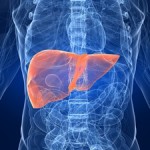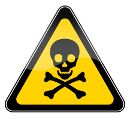Hepatic encephalopathy (HE): Facts, symptoms and prevention
 With aging it may seem normal to experience a loss in brain function, but often there are many contributing factors aside from age that takes a toll on brain function. Brain damage and dementia are just some other factors which can contribute to a loss in brain function. Another factor that diminishes brain function is a build-up of toxins in the blood.
With aging it may seem normal to experience a loss in brain function, but often there are many contributing factors aside from age that takes a toll on brain function. Brain damage and dementia are just some other factors which can contribute to a loss in brain function. Another factor that diminishes brain function is a build-up of toxins in the blood.
Hepatic encephalopathy (HE) is a condition where the liver cannot remove toxins found in the blood. It results in a loss of brain function, and can lead to liver failure. The cause of this neuropsychiatric syndrome is a metabolic abnormalities. The liver is unable to remove and break down toxins found in blood either because the liver is damaged or blood does not circulate properly in the liver.
Often, if liver health improves, hepatic encephalopathy may be reversed. This can be done by treating the liver condition or increasing blood flow. Consequences of prolonged HE can result in a coma or even be fatal.
Three types of hepatic encephalopathy
 There are three main types of hepatic encephalopathy: Acute, chronic and chronic cerebral degeneration and myelopathy.
There are three main types of hepatic encephalopathy: Acute, chronic and chronic cerebral degeneration and myelopathy.
Acute encephalopathy: Rapidly progresses over a short time span. This is a complication of acute liver disease and is a sign of terminal liver failure. It is commonly found in patients who have acute fulminant viral hepatitis, toxic hepatitis and Reye’s syndrome. (Reye’s syndrome causes swelling of the liver and the brain.)
Chronic encephalopathy: Occurs multiple times and requires long-term treatment to minimize and prevent symptoms during intervening periods. Cirrhosis patients who have extensive portal collateral circulation and/or shunts typically experience this type of HE. In their case, patients have redundant circulation to their organs, meaning the blood can travel in different pathways to the same spot. In between episodes, chronic HE may be mild and symptoms may not be noticeable. Chronic HE is a sign of deterioration caused by cirrhosis, a liver disease resulting from alcoholism and hepatitis.
Chronic cerebral degeneration and myelopathy: Possible permanent neurological abnormalities that don’t respond well to treatment. It can affect a person’s ability to walk or stay balanced. It is quite rare. Tremors may be present similar to that of Parkinson’s disease.
Four stages of hepatic encephalopathy
Stage 1: Symptoms in this stage affect sleep patterns and may include anxiety, depression and restlessness.
Stage 2: Personality changes can occur in stage two of symptoms. The ability to complete mental tasks is impaired and disorientation occurs.
Stage 3: Behavior becomes bizarre, aggression and rage are present, speech becomes harder to understand and there is a sense of paranoia.
Stage 4: Coma may occur and patient becomes unresponsive to pain stimuli.
Risks and Symptoms of hepatic encephalopathy
 The livers main role is to filter out toxins from the body. These toxins could be introduced by environmental factors, diet and even the medications we take. When the liver is healthy, it can filter in these toxins without problems. But a sick and damaged liver cannot complete this function, which results in a build-up.
The livers main role is to filter out toxins from the body. These toxins could be introduced by environmental factors, diet and even the medications we take. When the liver is healthy, it can filter in these toxins without problems. But a sick and damaged liver cannot complete this function, which results in a build-up.
Risks of hepatic encephalopathy
To avoid HE, people should take care to maintain a healthy liver. Avoid used needles, minimize alcohol intake and maintain a healthy weight to protect your liver. There are other triggers as well that can increase one’s risk of developing HE, they include:
- Dehydration
- Consuming too much protein
- Electrolyte abnormalities – low levels of potassium
- Bleeding from intestines, stomach or esophagus
- Infections
- Kidney problems
- Low oxygen
- Shunt placement or complications
- Surgery
- Medications that suppress the central nervous system.
Symptoms of hepatic encephalopathy
Early Stage symptoms of HE
- Musty or sweet odor breath
- Changes in sleep patterns
- Changes in thinking
- Mild confusion
- Forgetfulness and mind fog
- Changes to mood and personality
- Lack of concentration
- Impaired judgment
- Fine motor skills – like writing – become impaired.
These symptoms can be seen in early stages of HE, but as the illness progresses, so do the symptoms.
Severe symptoms of HE:
- Abnormal movements of limbs
- Agitation, excitement
- Disorientation
- Drowsiness or confusion
- Dramatic changes to behavior and personality
- Slurred speech
- Slowed movements.
Depending on the severity of symptoms, patients with HE have trouble caring for themselves and often require the assistance of a care-giver.
Nutrition and diet for hepatic encephalopathy
 By maximizing liver health, you can better treat and even prevent hepatic encephalopathy. One way of doing this is through nutrition and diet. Diet plays a large role on liver health as everything we consume passes through the liver. By eating to promote liver health, you can lower your risk of developing HE.
By maximizing liver health, you can better treat and even prevent hepatic encephalopathy. One way of doing this is through nutrition and diet. Diet plays a large role on liver health as everything we consume passes through the liver. By eating to promote liver health, you can lower your risk of developing HE.
6 tips to preventing hepatic encephalopathy
- Avoid alcohol
- Eat alternative sources of protein – vegetables, legumes, beans etc.
- Consume small and frequent meals – avoid periods of fasting
- Eat whole grains
- Limit salt, sugar and fatty foods
- Stay properly hydrated – six to eight glasses a day will help you achieve this.
Detox your liver with these 6 foods
The liver does many things, but its primary role is to filter blood coming from the digestive tract so it can go back into the body anew. The liver also is mainly responsible for breaking things down that enter the body. For example, chemicals, medications, toxins, even alcohol. Continue reading…
-
Genuine Quotes From Hydroxycut People
If you are interested in losing weight, reducing fat and building musc
-
How To Lose 20 Pounds REALLY REALLY Fast
Back ?in the day? when I used to be a full time personal trainer and I
-
DASH DIET: The Diet That Cause No Pain
A group of scientists from 5 main medical centers discovered that
-
Is Drinking A Lot of Water Really Necessary If I Want To Lose Weight?
Thats the question I have asked over and
-
The Fastest Strategy to Lose Abdominal Fat
If you’re like many individuals when you decide that you want to
-
What To Choose – Fat Binder Or Fat Blocker Pills?
As an answer to an increasing demand and obesity problem worldwide, co
- DON'T MISS
- Is Avoiding Sweets Driving You Nuts Put The Nuts To Work For You
- Snacking On This Before A Meal Could Help You Lose Weight
- How To Lose Arm And Thigh Fat
- Weight Loss Through Dieting Is Not Enough - You Have To Keep Moving, Too
- Medifast Diet Review - The 411
- Do You Know What Your Weight Loss Surgery Options Are?
- More Ideas On How You Can Lose Arm Fat Quickly
- Tips To Help You Burn Belly Fat
- Lose Fat With Cleansing
- Losing Weight Quickly Can be Bad for Your Health




